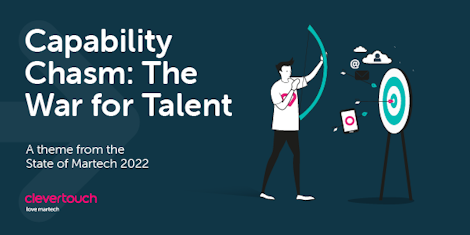Marketo’s acquisition by Vista Equity Partners this week was expected, but a bit of a surprise at the same time. All of the odds for Marketo’s acquisition were on Microsoft or SAP.
When the news broke on Tuesday, we all said “Vista who?” It turns out they are the BIG player no one has heard of, the owner of over 240 software brands including Return Path, Cvent and Misys.
In the US there is $1trillion dollars sitting in Private Equity firms looking for a new home. In an era of crappy financial returns, uncertain markets and ‘interesting’ US Presidential hopefuls, the purchase of Marketo is not the risky premium it seems.
And of course congratulations to Marketo - the deal looks to be approximately 2.5x the value Oracle paid for Eloqua. The numbers are eye-watering ($1.79 billion to be precise) – fantastic for the Marketo executive team and the employees with their soon to be exercisable stock options. After all, Marketo is a loss making business that reinvests 60% back into Sales and Marketing, albeit a very fast growing business with revenues last quarter of $62m. Not too shabby for a business founded in 2006.
But, do the Marketo acquisition numbers stack up?
Yes, they do. To quote Marc Andreessen where ‘software is eating the world’, nowhere is it more so than in these ‘platform’ plays. Platforms are worth the premium because they exert control, influence over other technologies and are very sticky. Marketing automation is the ultimate platform technology play.
The ‘Technology Spine’ of any growth business today is the 3 core technologies; Content Management System (CMS), the Marketing Automation Platform (MA) and the Customer Relationship Management (CRM) system. Where the CMS manages digital content, the CRM manages the company defined intelligence and MA acts as ‘the bridge’ between, moving a CMS led website from a brochure to a true marketing hub of user defined intelligence.
Every business wants to have coherent communication across all of their digital and physical interactions, garner customer insight and increase customer engagement at the same time. Marketing automation is the only technology that can allow businesses to do this efficiently and at scale. It also allows other technologies such as Cvent to feed off and link back into it for even more insight and intel.
Clayton Christensen, who wrote the HBR bestseller ‘The Innovators Dilemma’ and who talked of disruptive technology and consolidation at the higher end of feature rich technology, has been proved right yet again. To paraphrase Christensen, the company with the best, most advanced technology almost always never wins. In the marketing automation space the fallers include Neolane (lost in Adobe) and Aprimo (lost and rebranded as Teradata).
Meanwhile, Oracle is doing a great job at self-destructing the leadership position they automatically obtained when they bought the then market-leaders, Eloqua, for $800m three months after it went public.
Another platform Act-on has fallen away since the acquisition of Pardot by Salesforce, capturing the SME & Mid-market space, and Hubspot, the cute donkey in the field, which has a great story and lots of brand affection, is just not a serious player to anyone outside the creative world, who run a real business and uses a proper CRM platform. Just ask anyone who was locked into their proprietary CMS system before looking to upgrade to Pardot or Marketo.
Marketo meanwhile are fast becoming a high-end marketing automation play. Being owned by a patient ‘strategic’ investor means they can be less short-term focused and less quarterly driven. It also means other adjacent investments such as Return Path and Cvent have a strong platform alliance. However, with Pardot imminently releasing the Engagement Studio along with other new features on the roadmap, they are rapidly closing the gap, and an interesting battle will ensue.
In the long-term marketing automation world, we now see this as a two-horse race; Pardot owned by Salesforce and Marketo owned by the Private Equity firm we’d never heard of, but who we’ll certainly take note of now.

